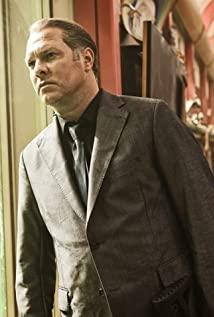The films the Germans make are probably the same as their industrial products. Serious, serious, serious even telling a joke, and of course, consistently high quality. For example, this "Tony Erdman" is very nice and typical, and it is a very interesting German movie after watching it.
The daughter is a company executive, independent, beautiful, and shrewd. She is about to be sent to Romania, the third world in the eyes of Germans. As an expatriate executive, she fights for the company and its shareholders and squeezes every profit from the local people.
Dad looks like the negative image of everything his daughter is tall and sloppy. He is much closer to the homeless than the senior white-collar workers. He looks tall and big, but he has a problem. nonstop joke. And, most importantly, it doesn't look like the father-daughter relationship is that good. Moreover, this seemingly unreliable father also had a whim and wanted to go to Romania to see his daughter and show his responsibilities and obligations as a father.
Does it look a little familiar? Is there a trace of shadow around you?
When my father arrived in Romania, it was not easy for a man who had never been out in a foreign country, let alone "caring for his daughter" in his own way. Looking at his clumsy appearance, he even created a fictional character like "Mr. Tony Erdman" out of thin air, and broke into his daughter's life like a bull rushing into a china shop. I fled in embarrassment time and time again, but made a comeback again and again, just in such stumbling and stumbling, the river of life just flowed forward regardless.
What about the daughter? It seems that the arrival of her father has brought her step-by-step life not only the warmth of family affection, but a big trouble. In contrast, the boss's performance pressure, the stubbornness of the partner, and the ambiguous relationship between colleagues are not a big problem. She, in fact, wasn't ready to accept her father from the beginning, or we guess she didn't want to accept it at all. The father-daughter relationship seems to have been selectively forgotten by her for some unknown reason.
The two of them were just twisting, twisting, and tossing each other, from the cold politeness at first, to the discomfort and unhappiness caused by mutual disgust, to testing each other's bottom line, carefully looking for the middle balance point, Until the last ending that seemed to be relatively warm, everyone learned to accept each other without disturbing each other too much, including each other's imperfections, especially the last hug, although the bodies of both parties still carried that kind of inertia. Stiff, but the smile on his face seemed to indicate that something had silently changed.
The filming was relatively loose. At first, I thought it was like a running account. In addition, the director's unique photography style, a large number of hand-cranked lenses, long shots and follow-up shooting are also full of documentary flavor. Like most European films, the pace is slow, and the first third is often tempting to drag the bar. As the plot progresses, we as the audience will also be brought in, with the joys, sorrows, surprises, or nervousness of the father and daughter, or laughing at the meeting, or bowing our heads in contemplation.
If you can calm down and watch it slowly, this is a good movie.
Because the director not only told a good story, but also dragged each of us into it. From the lives of the people in the play, we will see ourselves more or less.
Busier and busier self vs. older and older parents;
More and more impatient self VS more and more patient parents;
It is becoming more and more realistic, and the first reaction to everything is that you want the result VS the parents who are getting more and more verbose, and are left farther and farther by this real world;
For a long time, we have been saying that the Chinese are reserved and introverted, and don't know how to "love you and say it out loud", but if you look at it from the movie, the Germans seem to have the same problem. In fact, it makes sense to think about it. In today's China, whether it is economic development or social change, many shadows of the Western world can be found in it. It has taken us forty years to walk the road that others have walked for hundreds of years, and we are naturally proud and proud. However, while accumulating a large amount of economic wealth, the disintegration and reorganization of the original social structure, including the adjustment of interpersonal relationships, is also a challenge that cannot be underestimated, especially when the economic growth rate is gradually slowing down. Because everyone is not so busy, those problems that have been suppressed by rapid growth have not been solved, and will naturally gradually surface at this moment.
such as how to deal with their parents.
It sounds like this shouldn't be a problem, but everyone who's experienced it knows that it's a problem, and it's a big, tricky, and troublesome one.
It's not that we don't love each other, it's that we don't know since when, we suddenly don't know how to express to each other, and they used to be the people we love the most. Is this not a kind of sadness?
Don't forget, feng shui takes turns. Today we don’t get along well with our parents, so how should we treat our children tomorrow when we are old?
If we can't even get along with the people closest to us, how do we deal with a world that's not always well-meaning?
Further reading
Black and white impressions convey more than just the story itself
The era of fluttering white clothes
There is such a strange old man
I don't understand, how good is it?
It's better to smile with Nianhua instead of the angry eyes
Always remember, there will be reverberations
Life needs a good glass of wine
"Earth: One Magical Day" in the eyes of a veteran movie fan
Not everyone has a Transformer in their hearts
Zhiming and Chunjiao's Seven Year Itch
Don't talk about the main theme, you are a bad movie, it's a pity that those good actors were wasted!
what's behind the colony of dignity
Still water runs deep, Dunkirk
View more about Toni Erdmann reviews











